It is no more a news that Canada has long been recognized as one of the most attractive destinations for both skilled and unskilled workers worldwide. Its robust economy, high quality of life, multicultural environment, and stable political system have consistently made it a preferred choice for professionals seeking better career opportunities and living conditions.
Advertisement
The Canada Relocate Work Visa refers to various immigration pathways that allow foreign nationals to enter Canada for employment purposes with the intention of physically relocating. These pathways support the Canadian labor market by filling skill shortages with international talent, contributing to economic growth and innovation.
Inside this my guide, I intended to bring for individuals who are actively exploring international work opportunities. It will be particularly useful for:
- Skilled professionals seeking international career advancement,
- Recent graduates planning to work abroad,
- Individuals with job offers from Canadian employers,
- Employers and HR managers looking to understand the relocation process for hiring foreign talent.
What is the Canada Relocate Work Visa?
The term “Canada Relocate Work Visa” is used informally to describe a variety of legal work authorization programs that enable foreign nationals to move to Canada for employment. It is not a single, specific visa category but rather a collection of immigration streams that facilitate relocation for work purposes.
Advertisement
These visas are designed to address labor shortages, foster innovation, and attract global talent to Canada. Successful applicants are granted the legal right to work and reside in Canada for a specified period, with the potential to transition to permanent residency in many cases.
Commonly Used Pathways
Several visa programs are used for work-related relocation to Canada, including:
- Temporary Foreign Worker Program (TFWP) – for employer-sponsored roles that require a Labour Market Impact Assessment (LMIA).
- Express Entry System – a point-based system for permanent residency that includes Federal Skilled Worker, Federal Skilled Trades, and Canadian Experience Class programs.
- Global Talent Stream (GTS) – a fast-track work permit option for highly skilled professionals in tech and innovation industries.
Difference Between “Relocate” and “Remote” Work Visas
A relocate work visa requires the physical presence of the worker in Canada and usually mandates working on-site or in hybrid capacities within Canadian companies. On the other hand, remote work visas (not currently part of Canada’s formal visa programs) allow individuals to work from anywhere globally for foreign companies without immigration or labor market integration in the host country.

Types of Work Visas Available for Relocating to Canada
1. Temporary Foreign Worker Program (TFWP)
This program allows Canadian employers to hire foreign nationals when qualified Canadian citizens or permanent residents are not available. A positive Labour Market Impact Assessment (LMIA) must be obtained by the employer to demonstrate the need for a foreign worker.
2. International Mobility Program (IMP)
Unlike the TFWP, the IMP does not require an LMIA. It includes work permits issued for reasons such as international agreements (e.g., CUSMA), intra-company transfers, and significant cultural or economic benefit to Canada.
3. Global Talent Stream (GTS)
This stream, part of the TFWP, enables Canadian companies to quickly hire highly skilled foreign workers in occupations such as software engineering, IT, and digital media. Fast processing is offered, with most permits processed within two weeks.
4. Express Entry (for Permanent Residency)
Express Entry is a points-based immigration system used to select candidates for permanent residency. Skilled workers with job offers, relevant work experience, language proficiency, and education are prioritized. It includes subcategories such as:
- Federal Skilled Worker (FSW)
- Federal Skilled Trades (FST)
- Canadian Experience Class (CEC)
5. Provincial Nominee Programs (PNPs)
Each Canadian province and territory (except Quebec and Nunavut) operates its own immigration programs targeting specific labor market needs. PNPs may offer both temporary and permanent residency pathways.
6. Open Work Permits
Open work permits are not employer-specific. These are often issued to:
- Spouses of skilled workers or international students,
- Postgraduate work permit holders,
- Individuals under special agreements or humanitarian programs.
Eligibility Requirements
1. Job Offer Requirements
In most cases, a valid job offer must be secured from a Canadian employer. For LMIA-based permits, the employer must prove that no Canadian was available to fill the position. For LMIA-exempt permits, the offer must align with exemptions listed under IMP or international agreements.
2. Skills and Education
Applicants must possess the relevant academic qualifications or certifications required for the position. Education credentials may be required to be assessed by organizations such as WES (World Education Services).
3. Language Proficiency
Proof of English or French language proficiency is often required. Test results from IELTS, CELPIP, or TEF must meet the minimum threshold set by the visa program.
4. Work Experience
Documented work experience in the relevant occupation is essential. Experience must align with the National Occupation Classification (NOC) code provided in the job offer.
5. Age and Adaptability Factors
In point-based systems like Express Entry, age plays a role in the overall score. Adaptability is assessed based on factors like prior study/work experience in Canada, or relatives living in the country.
6. Medical and Police Clearance
Medical exams conducted by a panel physician approved by IRCC must be completed. Additionally, a police certificate from each country where the applicant has resided for more than six months is required to prove good conduct.
Step-by-Step Application Process
Step 1: A Job Offer Must Be Secured
Before a work permit application can be submitted, a formal job offer must be provided by a Canadian employer. The offer should include detailed job descriptions, salary, and employment terms.
Step 2: An LMIA Must Be Obtained by the Employer (if Required)
In cases where the job is not LMIA-exempt, the employer must apply to Employment and Social Development Canada (ESDC) for a Labour Market Impact Assessment. A positive LMIA confirms the need for a foreign worker.
Step 3: Necessary Documents Must Be Collected
Applicants must gather all required documentation, including:
- Valid passport,
- Job offer letter,
- LMIA (if applicable),
- Proof of qualifications and experience,
- Language test results,
- Police certificates,
- Medical exam results.
Step 4: The Work Permit/Visa Application Must Be Submitted
An application must be submitted online through the Immigration, Refugees and Citizenship Canada (IRCC) portal. Depending on the program, application forms may differ slightly. Fees must be paid during submission.
Step 5: Biometrics and Additional Interviews May Be Required
Biometric data (photo and fingerprints) must be submitted at a Visa Application Centre (VAC). In some cases, interviews with immigration officers may be scheduled for verification purposes.
Step 6: Entry to Canada and Work Commencement
Once the visa is approved, the applicant is issued a Port of Entry (POE) Letter of Introduction. Upon arrival in Canada, this letter is presented to immigration officers, and the work permit is officially issued at the border. Employment may begin immediately under the conditions specified.
Required Documents Checklist
A successful application for a Canada work visa depends heavily on the submission of accurate and complete documentation. The following documents are generally required:
1. Valid Passport
A passport that remains valid for the entire duration of the intended stay in Canada must be presented. It must have at least one blank page available for the visa stamp.
2. Job Offer Letter
A formal job offer from a Canadian employer is essential. The offer must outline job duties, salary, location, and duration of employment.
3. Labour Market Impact Assessment (LMIA) (if applicable)
For LMIA-based applications, the employer must submit a copy of the positive LMIA provided by Employment and Social Development Canada (ESDC).
4. Proof of Qualifications
Educational certificates, diplomas, degrees, and letters of reference from past employers must be submitted to confirm the applicant’s suitability for the role.
5. Language Test Results
Proof of English or French language proficiency must be submitted through accepted tests such as IELTS (General Training), CELPIP, or TEF. Results must remain valid at the time of application.
6. Medical Exam Results
A medical examination must be completed by a panel physician approved by IRCC. The results are submitted directly by the physician, but proof of the exam must be retained.
7. Police Certificate
A police clearance certificate must be obtained from every country where the applicant has resided for more than six months since the age of 18. It serves as evidence of good conduct.
8. Proof of Funds (if required)
In some visa categories (especially under Express Entry or open permits), proof of sufficient financial resources to support oneself and dependents in Canada may be requested.
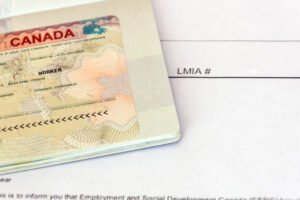
Your Processing Time and Fees
1. Average Processing Time by Visa Type
Processing times vary depending on the visa category, the applicant’s country of residence, and the time of year. Approximate durations are as follows:
- Global Talent Stream: 2 to 4 weeks
- TFWP (standard LMIA-based): 8 to 12 weeks
- Open Work Permit: 10 to 14 weeks
- Express Entry (Permanent Residency): 6 to 8 months (once invited to apply)
Applicants are advised to check the latest processing times on the IRCC official website.
2. Breakdown of Costs
Applicants should be prepared for the following costs:
- Work permit application fee: CAD $165
- Biometrics fee: CAD $86
- Medical exam: CAD $110–$300 (varies by country)
- Police certificate fees: Varies by country of issue
- LMIA fee (paid by employer): CAD $1,050
- Credential evaluation (WES, if required): CAD $210–$250
3. Tips to Speed Up the Process
- Apply online to avoid postal delays.
- Ensure all documents are scanned clearly and submitted in the correct format.
- Submit a complete application; missing documents may lead to delays or rejections.
- Check country-specific requirements before submission.
Rights and Responsibilities of Work Visa Holders
1. Legal Working Hours and Wages
All workers are protected by Canadian labor laws. The minimum wage varies by province and must be respected by employers. Full-time employment is typically considered 30 to 40 hours per week.
2. Changing Employers
A change of employer may be possible but depends on the type of work permit issued. If a closed (employer-specific) work permit is held, a new LMIA and permit may be required. Open work permits allow more flexibility.
3. Healthcare and Social Benefits
In most provinces, work permit holders and their dependents become eligible for public healthcare after a waiting period. Social benefits, such as employment insurance or parental leave, may be accessed depending on eligibility.
4. Pathways to Permanent Residency
Work permit holders may apply for permanent residency through:
- Canadian Experience Class (CEC) after gaining one year of skilled Canadian work experience,
- Provincial Nominee Programs (PNPs) based on regional labor market needs,
- Express Entry, using work experience and other factors to improve CRS scores.
For Family Sponsorship and Relocation
1. Can You Bring Your Spouse and Children?
Yes, spouses and dependent children can accompany the primary applicant. Their inclusion must be declared at the time of application.
2. Dependent Visa Options
- Spouse: May be eligible for an open work permit, allowing employment without a specific job offer.
- Children: May be issued study permits to attend elementary or secondary schools in Canada.
3. Schooling and Healthcare Access for Dependents
Children of work visa holders may attend public schools free of charge in most provinces. After meeting provincial residency requirements, family members may also qualify for public healthcare.
Common Challenges and How to Overcome Them
1. LMIA Delays or Denials
LMIA applications may be delayed due to employer documentation errors or labor market conditions. Employers should be assisted by immigration professionals when possible. Alternative LMIA-exempt pathways may also be explored.
2. Job Market Competition
Competition for jobs in Canada can be intense. Resumes should be tailored to Canadian standards, and interviews should be prepared for using local business etiquette.
3. Housing and Settlement
Housing in major cities like Toronto and Vancouver can be expensive. It is recommended that temporary accommodations be arranged before arrival, and settlement services be utilized to find longer-term housing.
4. Credential Recognition
Foreign qualifications may not be directly accepted in regulated professions. Licensing exams or bridging programs may be required. Credential evaluations should be initiated early through services such as WES or ICAS.
Tips for a Successful Application
A successful Canada work visa application is not only determined by eligibility but also by strategic planning, presentation, and resource utilization. The following best practices should be followed:
1. How to Find Canadian Employers
Job offers from Canadian employers play a crucial role in work visa applications. Employers can be found through:
- Canadian job boards such as Job Bank, Indeed Canada, Monster.ca, and Workopolis
- Company websites with dedicated career sections
- Recruitment agencies authorized to operate in Canada
- Participation in virtual job fairs and global talent recruitment programs
2. Resume/CV Formatting for Canadian Jobs
Canadian resumes are expected to be concise (typically one to two pages) and tailored to each position. The following practices are recommended:
- Personal information such as age, marital status, and photo should be omitted.
- A clear summary or objective should be included.
- Job experience must be listed in reverse chronological order with measurable achievements.
- Keywords from the job posting should be incorporated to pass applicant tracking systems (ATS).
3. Leveraging LinkedIn and Job Portals
LinkedIn should be optimized to reflect professional achievements and job preferences:
- A professional profile photo and headline must be used.
- Relevant keywords should be embedded in the profile summary and experience sections.
- Direct connections with recruiters and Canadian companies should be established. Job portals such as Glassdoor, Eluta, and Talent.com also offer extensive Canadian job listings.
4. Using Immigration Consultants Wisely
If external help is required, it should be ensured that only Regulated Canadian Immigration Consultants (RCICs) or immigration lawyers licensed by a Canadian provincial bar are used. These professionals are authorized by the College of Immigration and Citizenship Consultants (CICC). Caution should be exercised to avoid fraudulent or unlicensed consultants.
Transitioning from Work Visa to Permanent Residency
Relocating to Canada on a work visa can serve as a stepping stone to permanent residency (PR). Several pathways are available for this transition:
1. Express Entry Pathways
Work experience gained in Canada can significantly increase an applicant’s Comprehensive Ranking System (CRS) score under the Express Entry system. Common programs include:
- Canadian Experience Class (CEC) – For those with at least 12 months of skilled work experience in Canada.
- Federal Skilled Worker (FSW) – For skilled workers abroad or in Canada who meet education and experience requirements.
2. Provincial Nominee Programs (PNPs)
Many provinces nominate workers for permanent residency based on regional labor needs. These programs often require:
- A valid job offer,
- Relevant work experience in the province,
- Intent to settle in that province long-term.
PNP nominations significantly increase CRS scores and offer more targeted PR options.
3. When and How to Apply for PR
An application for permanent residency should be submitted once eligibility requirements are met. This can be done through:
- The IRCC Express Entry portal, if eligible for CEC or FSW,
- A provincial immigration stream, if nominated by a PNP,
- Paper-based applications, where online options are not available.
Applicants are advised to monitor processing times and prepare supporting documents well in advance.
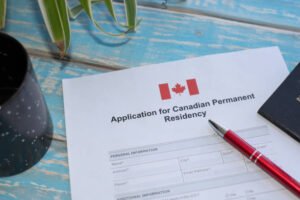
Some Popular FAQs
1. Can I apply without a job offer?
Yes, under certain immigration streams such as Federal Skilled Worker (FSW) via Express Entry, a job offer is not mandatory but significantly increases selection chances. For most temporary work visas, however, a job offer is required.
2. What happens if I lose my job?
If a closed work permit is held and employment ends, legal status in Canada may be affected. It is recommended that a new employer be secured, and a new work permit application be submitted immediately. Open work permit holders have more flexibility in changing employers.
3. Can I study on a work visa?
Short-term courses (usually six months or less) can be taken while on a work permit. For full-time academic programs, a study permit must be obtained separately.
4. Is the work visa renewable?
Many work permits are renewable, depending on the program and employer’s willingness to support an extension. LMIA may need to be renewed, and eligibility criteria must continue to be met.
Conclusion
The process of relocating to Canada on a work visa can be complex, but it is achievable with careful planning, accurate documentation, and a strategic approach. From securing a valid job offer to understanding the application process, eligibility requirements, and long-term residency options, each step plays a critical role in ensuring success.
Applicants are encouraged to:
- Take the time to research the right visa category,
- Seek reliable job opportunities and legal guidance,
- Stay updated on changes to immigration policies through official sources such as IRCC.
With preparation and persistence, a successful career and new life in Canada can be established.




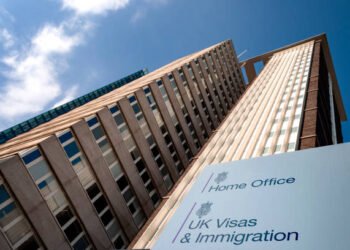


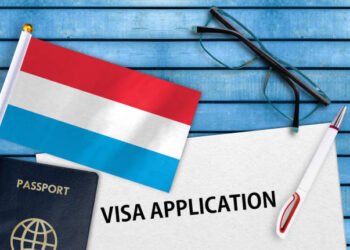
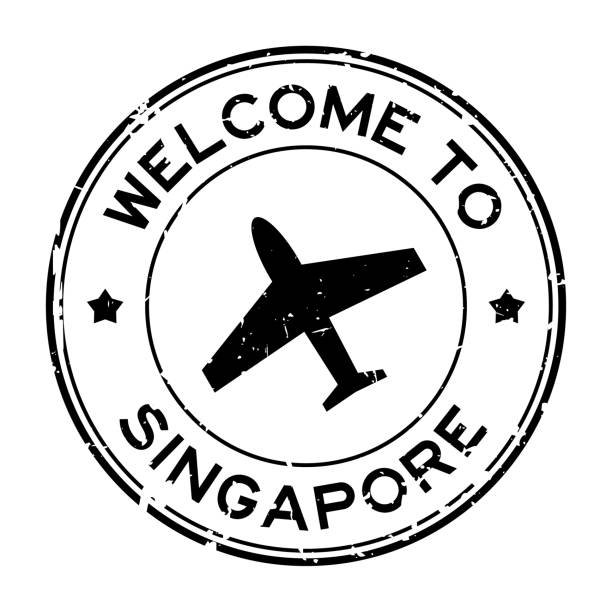

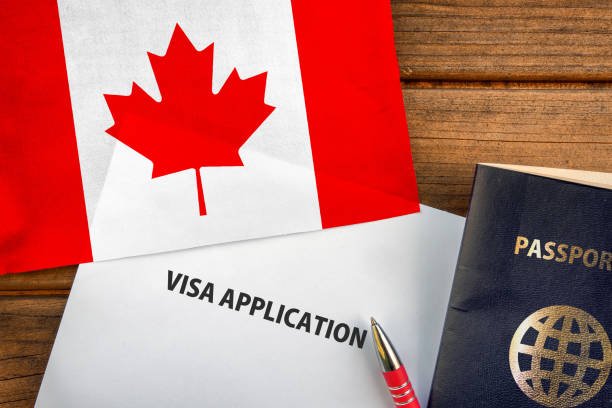







Thank you
I’m so much interested in working in abroad
I love your country
Yes
I need a visa to your country I love your y
I’m interested
Cyril
🌟
Hi wow wow wow wow wow wow this country is it good I love that I love your country your country is so kind please can you do me a favor please sponsorship is is it free sponsorship and free visa